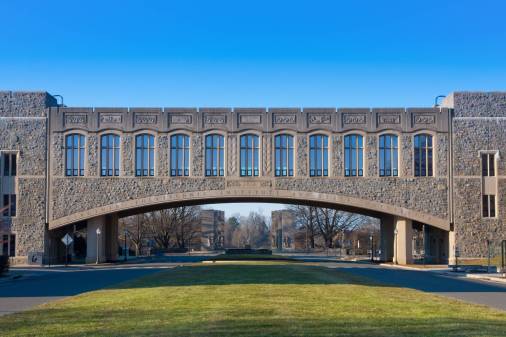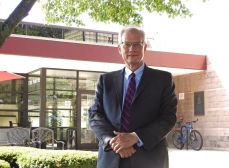Virginia Tech, Google test drones delivering food on campus

Students at Virginia Tech will soon see drones delivering burritos on the university’s Blackburg campus.
The flying burritos will actually be part of more serious research being conducting this fall by the Virginia Tech Mid-Atlantic Aviation Partnership (MAAP) and Google’s Project Wing, which have teamed up to test the feasibility of delivering food using unmanned aerial vehicles, or drones.
Researchers for Project Wing will deliver burritos prepared by Chipotle, the national restaurant chain, to small group of students and employees over several hundred yards of open ground on a closed campus site. The flights will be the first tests of such a drone-delivery system with external users by Project Wing, which is part of Google X, an innovation lab that seeks new breakthroughs in science and technology.
Project Wing has conducted thousands of test flights in private airfields with a prototype drone that can fly efficiently for long distances and deliver packages safely and precisely. The realistic conditions at Virginia Tech are a first step toward integrating deliveries by unmanned aircraft into everyday life, researchers said.
The flight tests at Virginia Tech are expected to yield technical, safety and user-experience data on food delivery via drones. MAAP and Project Wing officials will share findings from the research with the Federal Aviation Administration.
“Our collaboration will generate new data on the operation of a delivery system and aircraft and will help gather insights about how people might use an aerial delivery system in their daily lives,” said Project Wing leader Dave Vos.
Food delivery, which has constraints such as time, temperature, frequency, packaging and volume, is an ideal platform for testing commercial drone deliveries.
“Package delivery by drone, especially for rapid turnover operations like food delivery, is one of the most challenging applications in technology,” said Virginia Tech MAAP director Mark Blanks. “Efficient operations require the aircraft to be operated beyond the visual line-of-sight of the pilot, over densely populated areas and with many aircraft in the air at the same time.
The research has the potential to help open up entirely new approaches that are cheaper, faster and more environmentally friendly than ground transportation. It will also provide more data on the routine operation of unmanned aircraft for everything from natural disaster relief to shopping to emergency medicine, according to researchers.
The project is part of Virginia Tech’s $75 million initiative to create intelligent infrastructure for human-centered communities, officials said. Virginia Tech was selected by the FAA in 2013 as one of six national test sites for unmanned aircraft. Since then, researchers have investigated medical-supply delivery to remote locations, worked with NASA to research a traffic-management research platform for unmanned aircraft and assisted in other unmanned aircraft applications.
Also on the campus food-delivery front, Xavier University in Ohio is hosting the first pizza ATM in the U.S., according to reports. The $55,000 machine, located in a residence hall, will be open for business 24 hours a day and will cook a 12-inch pizza in about three minutes.




